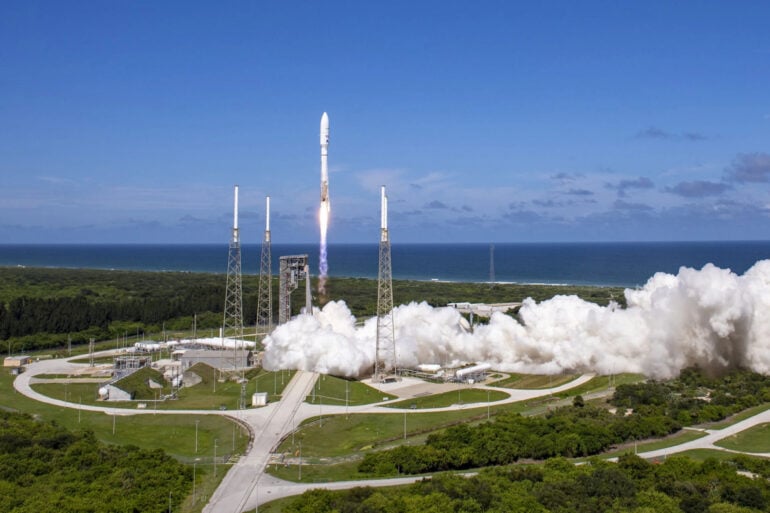NBN Co is partnering with Amazon’s Project Kuiper to provide low Earth orbit (LEO) satellite internet connectivity to rural Australians, starting in mid-2026.
LEO technology is set to eventually replace the NBN’s existing geostationary (GEO) Sky Muster satellites that have been in use over the past decade. Australia’s GEO satellites orbit more than 36,000km away, while Project Kuiper’s LEO satellites will orbit closer to 600km. The intended result is faster, lower-latency, and more reliable internet to Australians not reached by fixed line or wireless services.
The rollout of the new LEO technology will start with the “lower half” of Australia, including Tasmania, in 2026. Sky Muster will remain in service throughout the transition. 78 Kuiper satellites are currently in orbit, with the constellation to expand to more than 3,200.
NBN Co CEO Ellie Sweeney said the partnership is part of making “buffering in the bush a thing of the past.”
“Transitioning from two geostationary satellites to a constellation of Low Earth Orbit satellites will help to ensure the nbn network is future-ready and delivers the best possible broadband experience to customers living and working in parts of regional, rural and remote Australia,” Sweeney said.
Between now and then, NBN Co will consult with internet providers and communities, including various testing, before the new service is offered commercially. Sweeney declined to comment on the cost of the partnership, citing commercial sensitivity, but emphasised that NBN Co is funding the initiative, and that the money is not coming from a “taxpayer equity injection”.
NBN’s partnership with Amazon’s Project Kuiper isn’t exclusive, however, leaving the door open for other technologies down the line. Telstra already sells satellite internet provided by Starlink’s LEO array, while Optus has also been working with Starlink’s parent company, SpaceX.
Project Kuiper began in 2019 as an Amazon-backed venture to provide broadband connectivity around the world. Although NBN Co hasn’t yet discussed exact speeds, Project Kuiper’s website lists possible download speeds of up to 1Gbps for enterprise users, and up to 400Mbps for regular customers.








